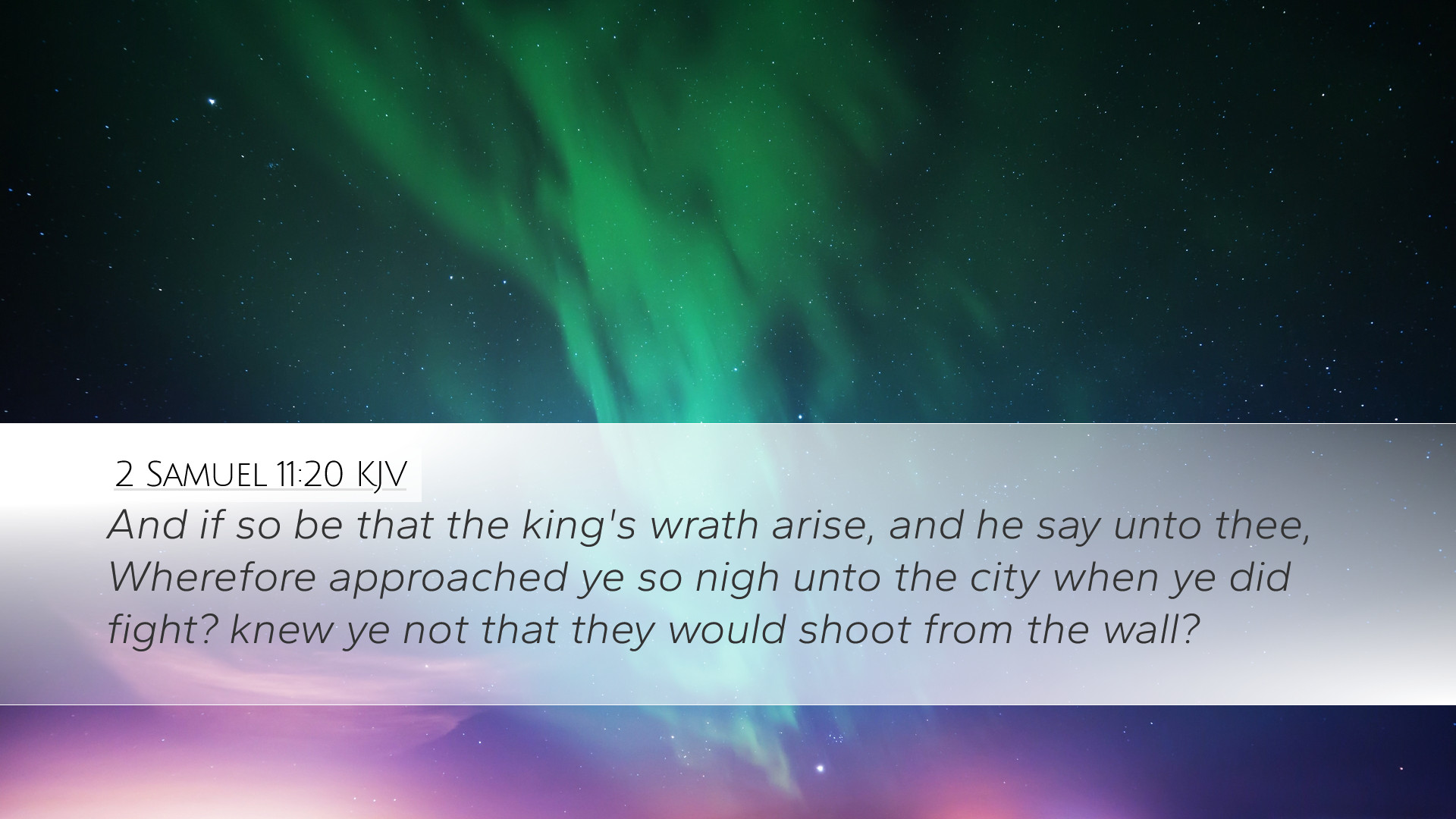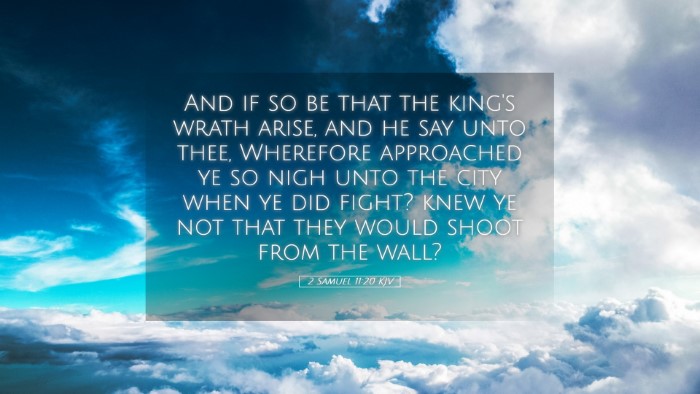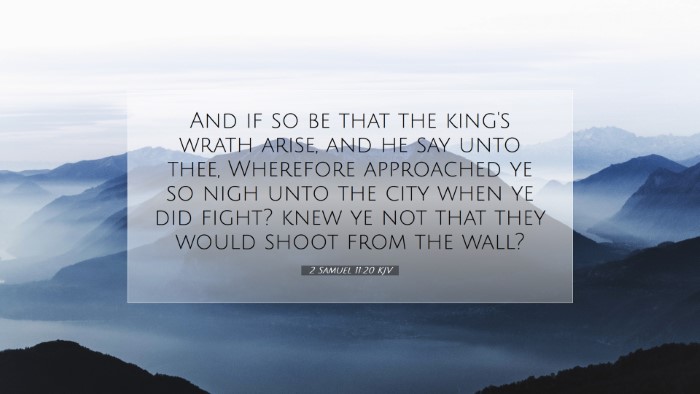Commentary on 2 Samuel 11:20
Verse Context: 2 Samuel 11:20 presents a moment in the life of King David that encapsulates a pivotal point in his reign. It recounts the messenger's duty to relay the outcomes of the battle against the Ammonites and the fallout of David's decision regarding Uriah the Hittite.
Exegetical Insights
Historical Background: This verse is situated within the broader narrative of David's sin with Bathsheba. It is critical to understand that David’s actions stem from a series of decisions that led to moral and ethical degradation.
Commentary Contributions
Matthew Henry's Commentary
Matthew Henry emphasizes the severe consequences of David's transgressions. He notes that David’s inquiry into the battle's progress was not merely about a military report but also about the fallout from his heinous actions. Henry encourages readers to observe how sin warps judgment and distorts priorities.
- Sin's Deception: Henry points out that sin often leads to tragic consequences. David, a man after God’s own heart, fell into a web of deceit, leading to numerous deaths and emotional turmoil.
- Duty of the Messenger: The messenger’s role was challenging, as he had to convey news that could mean life or death. The importance of truth in reporting was underscored, highlighting the difficulty of communicating sensitive news.
Albert Barnes' Commentary
Albert Barnes contextualizes the verse within the framework of leadership and accountability. He asserts that the verse follows a pattern of poor decisions made by David, which leads to the ultimate fall from grace.
- Leadership Responsibility: Barnes notes that David's leadership was compromised due to his moral failings. The verse serves as a reminder of the burdens leaders carry, not only for their actions but for how those actions impact others.
- Consequences of Actions: He stresses that the ripple effects of David's sin are vast. The need for repentance in positions of authority is paramount, as illustrated by the dire ramifications of David's choices.
Adam Clarke's Commentary
Adam Clarke provides a theological reflection on the implications of David’s actions and the role of divine retribution. He emphasizes the importance of consequences in the life of believers.
- Divine Justice: Clarke argues that God’s justice prevails, and the narrative underscores that hidden sins will eventually be uncovered. David, who orchestrated Uriah's death, is bound to face the repercussions.
- Reflection on Human Nature: Clarke reflects on the fragility of human nature, suggesting that even godly men can stumble when tempted. The lesson here is a sobering warning against complacency in spiritual vigilance.
Theological Considerations
This verse offers rich material for theological reflection on sin, leadership, and the nature of repentance. The compatibility of divine mercy with justice is a central theme in understanding the narrative surrounding David.
Application for Leaders
Pastors and leaders in both church and community settings can draw significant lessons from 2 Samuel 11:20. It serves as a cautionary tale about the responsibilities of leadership and the necessity of integrity and transparency.
- Integrity in Leadership: Leaders are called to maintain integrity, knowing that decisions can have far-reaching consequences.
- Importance of Accountability: Engaging in a community that provides accountability helps protect against moral failures. Leaders should foster environments where honesty and openness are encouraged.
Reflection for Theological Students
Theological students studying 2 Samuel 11:20 are invited to explore the deeper implications of this text within the greater scope of Biblical narrative. Consideration should be given to how this verse informs our understanding of sin and grace.
- Sin’s Universality: Recognizing that all individuals are susceptible to temptation and sin encourages humility and reliance on God’s grace.
- Grace and Redemption: A thorough exegesis encourages students to explore how God’s redemptive plan encompasses even those who fall deeply into sin.
Conclusion
In conclusion, 2 Samuel 11:20 is not just a recounting of a messenger's report but a lens through which the consequences of sin, the complexities of leadership, and the pervasive nature of divine justice can be viewed. By examining the insights from public domain commentaries and reflecting on their application, the depth of scripture can be appreciated in both personal and communal contexts.


